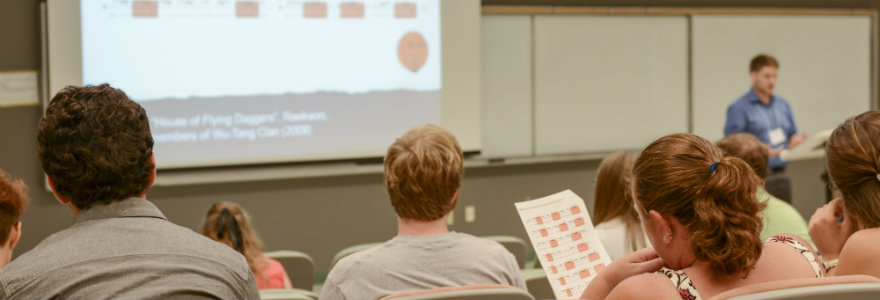PhD in Music Education

Admission Requirements
- A Master's degree in Music Education (or equivalent)
- Minimum 70% average in the Master's degree
Application Materials
- Two essays (3,000-4,000 words) that demonstrate the ability to articulate and carry out research in music education
- A statement of interest video (10 minutes)
- A recent music teaching video (15-20 minutes) including a reflective running commentary (voice-over or subtitles)
- A current resume or CV
- Three confidential letters of reference
- Transcripts from all institutions attended, uploaded in PDF
- Proof of English language proficiency (if applicable)
- Selected candidates will be invited for an interview
Application Deadline: December 1
The PhD in Music Education program challenges students to think critically and creatively, applying theoretical ideas to their experiences as musicians and educators. Pedagogical issues are explored through diverse lenses that consider the past, present, and future of music education. Our students actively present their research at conferences and workshops around the world.
Timeline for Progression
| Year 1 | Year 2 | Year 3 | Year 4 | ||||||||
| Term 1 |
Term 2 |
Term 3 |
Term 4 |
Term 5 |
Term 6 |
Term 7 |
Term 8 |
Term 9 |
Term 10 |
Term 11 |
Term 12 |
|
9640a 9651a/ Seminar in Music Education |
Elective* Elective* Seminar in Music Education |
Preparation for Qualifying Exams |
9641a 9651a/ Seminar in Music Education |
Elective* Seminar in Music Education |
Qualifying Examination |
Dissertation Proposal Defence Seminar in Music Education |
Dissertation Research and Writing | ||||
Problems viewing on mobile? Click to view table
*Students are encouraged to take at least one of their electives outside of the Faculty of Music.
Notes:
- Students are encouraged to develop their topics for each of the 2 Qualifying Examination papers (Literature/Theoretical Framework and Methodology) throughout Terms 3, 4 and 5. Consultation with faculty is highly encouraged.
- By May 1 (start of Term 6), each student should have a confirmed dissertation supervisory committee (normally a dissertation supervisor and a second reader). The dissertation supervisory committee will determine a deadline for submission of the Qualifying Examination papers. The dissertation proposal should follow from the Qualifying Examination.
- The Dissertation Proposal Defense should be completed as early as possible in Term 7, following successful completion of the Qualifying Examination.
- This chart does not include the application for ethics approval (where applicable). The student and supervisor must plan accordingly.
Directory of Current PhD Students
Recently Completed Dissertations
Contact Info
Associate Dean (Graduate Studies)
Kevin Mooney
TC 215
kmooney@uwo.ca
Graduate Program Assistant
Audrey Yardley-Jones
TC 216
519-661-2111 x85354
ayardley@uwo.ca


